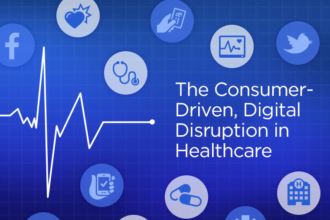In 2011, the first wave of the baby boomers will turn 65, and by 2030, there will be >70 million elderly Americans, more than double the number in 2000. It has been well discussed that the current health care system does not have the necessary infrastructure to adequately support the complex needs of our aging population. We continue to hear about the new and innovative technologies that are poised to fix our healthcare delivery system by keeping the seniors well monitored and living in their homes longer. While technologies for senior care have clearly evolved, many of
In 2011, the first wave of the baby boomers will turn 65, and by 2030, there will be >70 million elderly Americans, more than double the number in 2000. It has been well discussed that the current health care system does not have the necessary infrastructure to adequately support the complex needs of our aging population. We continue to hear about the new and innovative technologies that are poised to fix our healthcare delivery system by keeping the seniors well monitored and living in their homes longer. While technologies for senior care have clearly evolved, many of the challenges that have kept it from widespread adoption over the past twenty years still remain including:
- Slow adoption among seniors: Seniors are slower-than-average adopters of technology, and this has contributed to a sense of untapped opportunity in the market. The underlying reasons for this are not complicated – most products are not designed with the senior population in mind. It is certainly plausible that seniors would use technology more readily if it were designed to meet their needs, but there is a natural avoidance from this population today.
- Out-of-pocket costs: A lack of Medicare reimbursement for remote monitoring of patient care has pushed the costs to the consumers. Emerging technologies must be able to provide outcomes and ROI studies which prove the value of their product/solution before reimbursement will be considered.
- Lack of defined sales channels: Because of reimbursement issues, almost all of these products have yet to penetrate a highly visible sales channel. Until consumer electronics retailers, such as Best Buy start prominently displaying senior care technology solutions, most of these products will remain available only through a distributor or direct from the manufacturer.
- Regulation and lack of interoperability: The FDA has indicated that it intends to regulate the flow of health information and a lot of confusion still exists around what is and what is not health information. A lot of attention is focused on the Continua Health Alliance, which will hopefully sort out some of the interoperability issues.
- Products instead of solutions: In our view, a key problem in this market is that there are now dozens – if not hundreds – of technology products for the elderly and their caregivers, but very few full solutions. Every day brings a new press release about a new product. It seems to me that the future leaders in this market will be those that find a way to offer a fully integrated technology-enabled solution rather than a list of products.
Our team is assessing this pending “Silver Tsunami “and preparing a research publication for release later this quarter. We’re still early in the seniors-focused technology curve and many ideas/companies will struggle (and fail) amid the challenges described above. Those organization fortunate enough to grasp it, will thrive in this extremely large and underserved market. Thanks and have a great week.
Judd Stevens
![]() Judd Stevens is an associate at TripleTree covering the healthcare industry, specializing in the impacts and transformation of health plans in a post-reform world. Follow Judd on Twitter or e-mail him at jstevens@triple-tree.com.
Judd Stevens is an associate at TripleTree covering the healthcare industry, specializing in the impacts and transformation of health plans in a post-reform world. Follow Judd on Twitter or e-mail him at jstevens@triple-tree.com.






